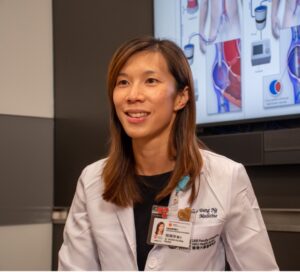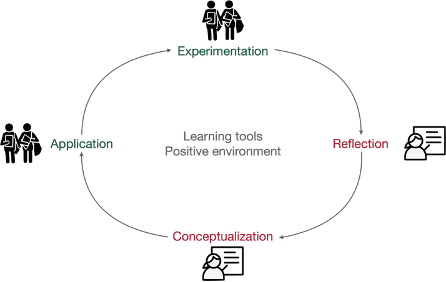e-News
Faculty Teaching Medal 2022
Faculty Teaching Medal 2022
Dr Pauline Yeung
Clinical Assistant Professor, Critical Care Medicine Unit, School of Clinical Medicine
 |
What is your teaching philosophy? My role as a clinical teacher is to help students leverage their prior knowledge and formulate their clinical frameworks for application to real patient care. This involves engaging them in cycles of experimentation, reflection, conceptualization, and application (see schema below). The art of teaching and my personal teaching goal is in seizing the moments of intervention during “reflection” and “conceptualization” (in red), while “experimentation” and “application” are largely student-driven processes (in green). The overall efficacy of the learning cycle is exponentiated through adopting appropriate learning tools and cultivating a positive environment.
Within class, it is wonderful to interact with students and to witness their “lightbulb moments” – when things seem to suddenly click into place for them. I enjoy sharing my own learning journey and hopefully helping them find joy and meaning in theirs. Outside of class, it’s fascinating to hear about what my students do. They continually motivate me to challenge myself even more. What kind of teacher-student relationship do you establish?
|



